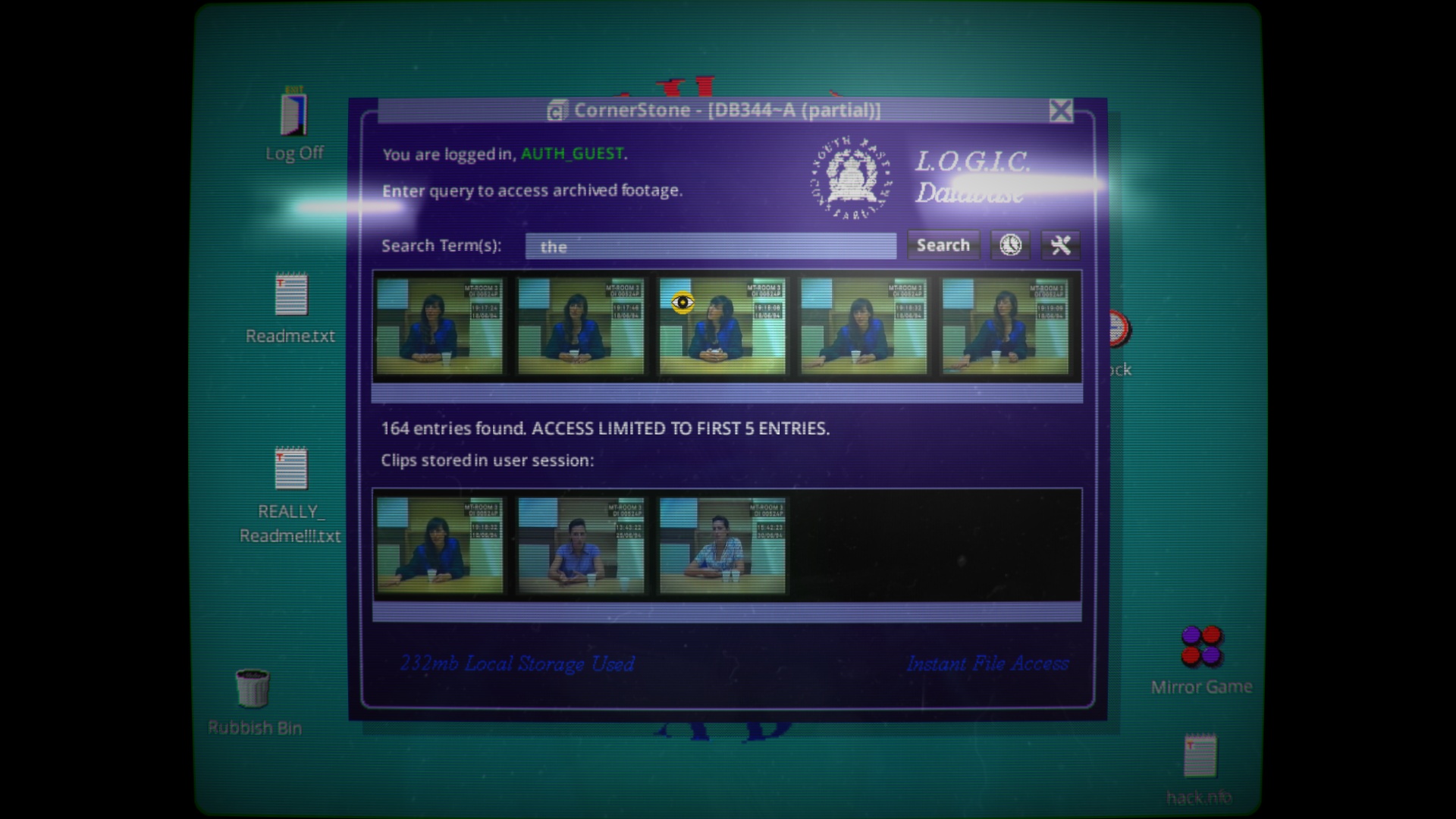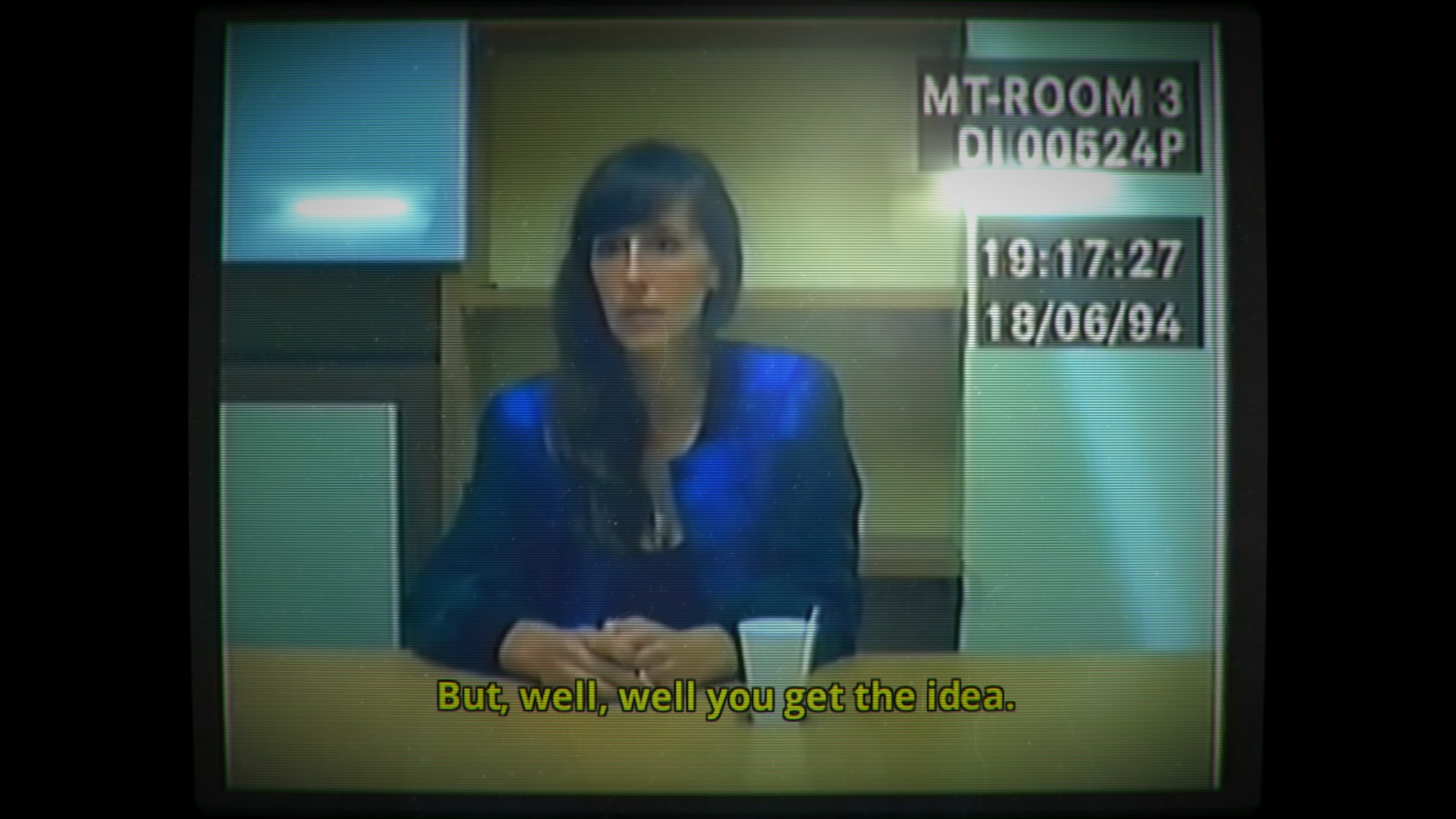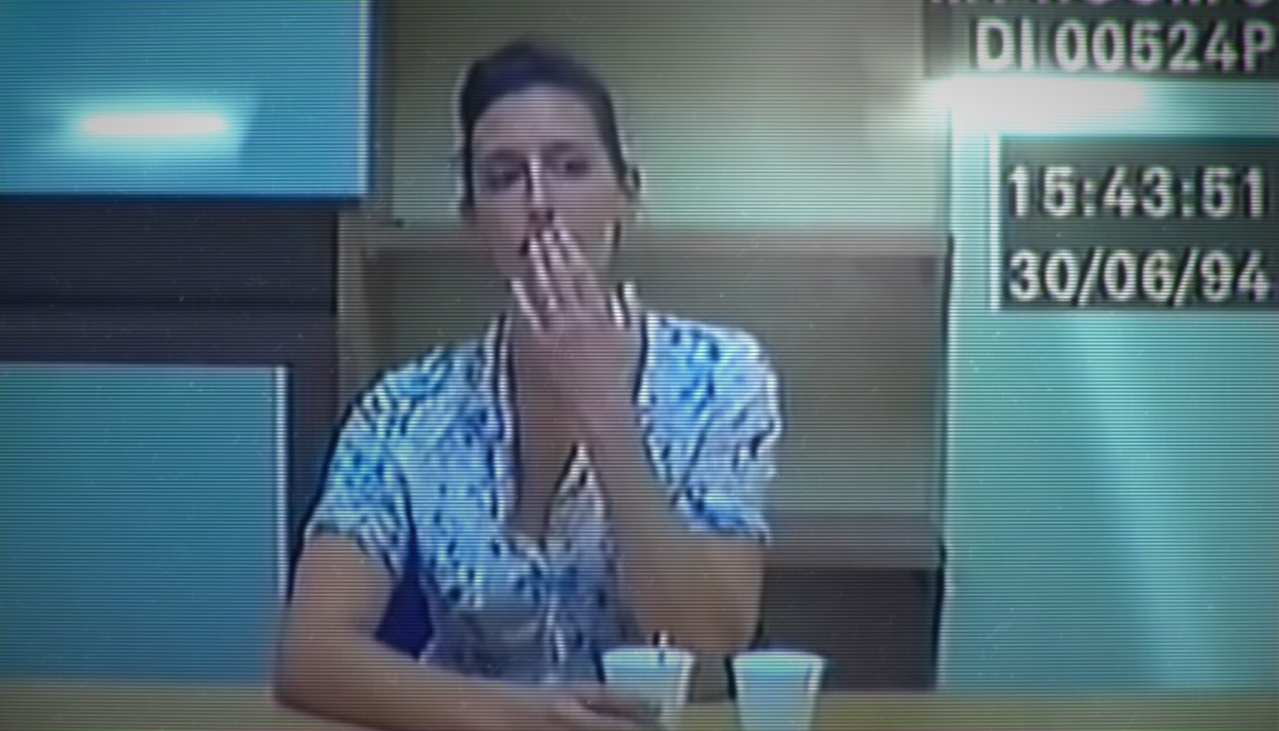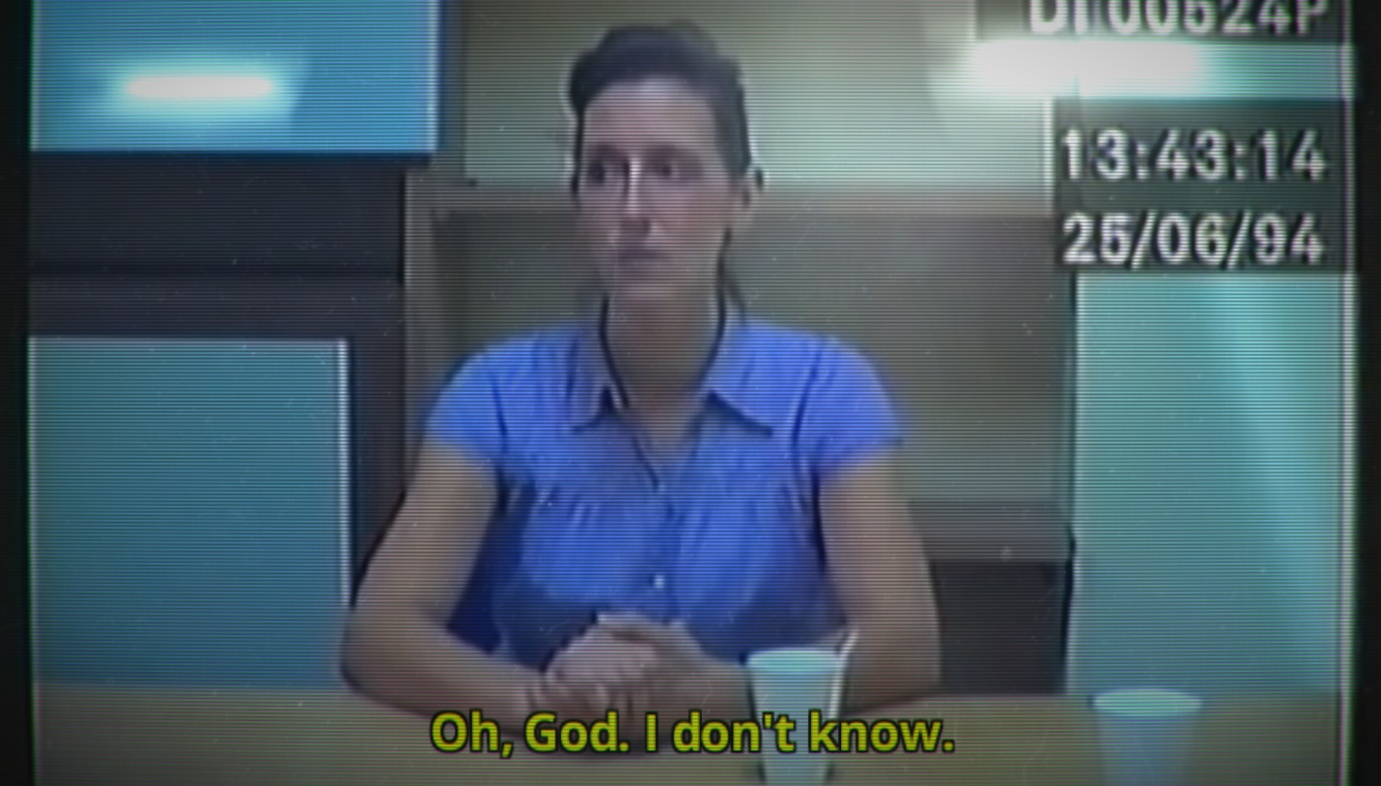TOM FRANCIS
REGRETS THIS ALREADY
Hello! I'm Tom. I'm a game designer, writer, and programmer on Gunpoint, Heat Signature, and Tactical Breach Wizards. Here's some more info on all the games I've worked on, here are the videos I make on YouTube, and here are two short stories I wrote for the Machine of Death collections.
Theme
By me. Uses Adaptive Images by Matt Wilcox.
Search
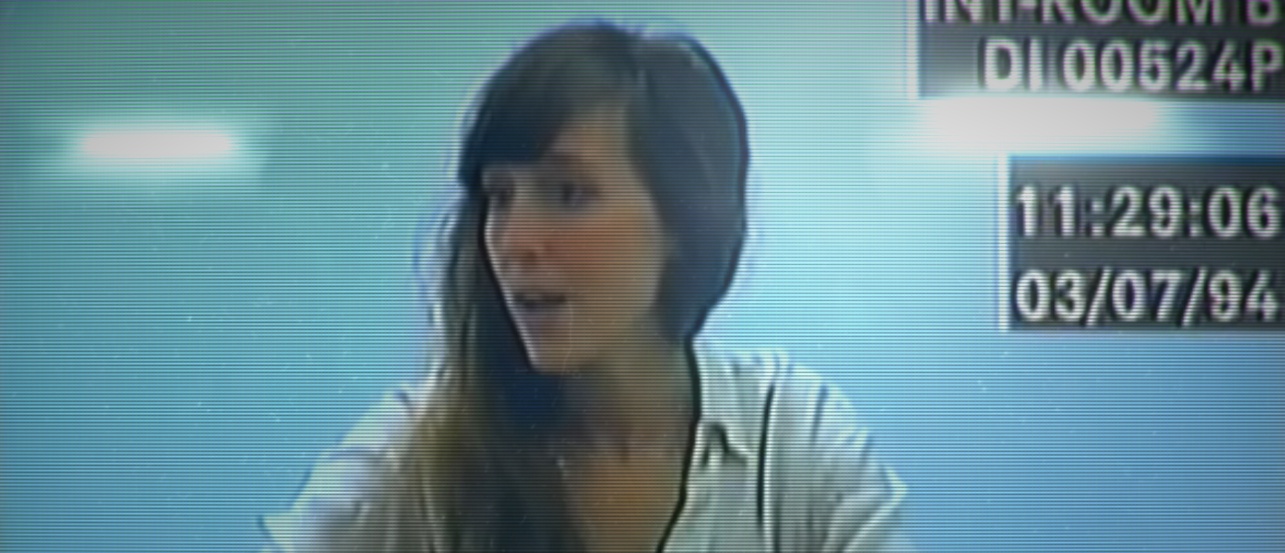
What Works And Why: Nonlinear Storytelling In Her Story
What Works And Why is a thing where I dig into the design of a game I like and try to analyse what makes it good, hopefully to learn from it but also because I love this stuff.
Spoiler-free
The Game: Her Story
You play someone who’s been given access to a database of video clips, all of the same woman being interviewed by the police about the disappearance of her husband. You can only find the clips by searching for words or phrases you think might be in their transcripts, and you only get to see the first five results of that search. The clips are extremely short – most are about 20 seconds – but there are hundreds. The more you watch and discover, the better an idea you get of what to search for, and slowly you piece together the truth of what happened.
What Works: Nonlinear Storytelling
You’re free to search for anything you like, and the game cannot hide or lock off any clips that mention that term. The only restriction is that five-clip limit, and that’s sorted in chronological order, so it also can’t cheat by keeping a particular clip out of the top five artificially. That means it’s entirely possible to find the deepest secrets of the story with your first search.
But that’s not what happened for me, or anyone else I’ve talked to. In fact, it seems to almost always play out like a brilliantly paced thriller: mysterious hints leading to confusing contradictions, leading to revelations, then to further curiosities, then to even bigger revelations.
It was about an hour before I felt I had a handle on what happened, and an hour later it was all turned on its head. By then I was so fascinated that I spent another hour scouring for more, fleshing out the details, and investigating side-leads. I expect it would be two more to find everything.
Why:
Having to type in search terms means the way you explore and discover the plot is driven by your own intelligence. You can search for general terms if you’re stumped, but more often something she says will spark an idea in your head, you type it in, and see what you get.
When an idea like that fills the results box with 5 undiscovered clips, you get to feel what it’s like to make a breakthrough in a murder case – to solve something with a flash of inspiration. And because nothing in Her Story is straightforward, there’s a delight to delving into that fresh treasure trove of new information – new questions as much as new answers.
Letting the player potentially find any part of your story in any order is a counter-intuitive idea for an entirely story-driven game.
Without that five clip limit, I don’t think it would work – a generic search would become a playlist of all the videos.
Without the search results being in chronological order, I don’t think it would work – you could keep trying different generic words until the juicy stuff came up by chance.
And with a simpler plot, I don’t think it would work – the ‘truth’ of Her Story’s plot is so elaborate and complex that even watching the game’s most revealing clip would only give you one piece of the puzzle.
That last point is what really made it special, for me. I took 700+ words of notes while playing, meticulously organised by date of interview, and repeatedly had to revise or correct assumptions I’d made about the meaning of earlier clips.
My first big revelation was a substantial clip that seemed to describe the whole crux of the thing, and sent me on a frenzied series of searches to investigate its most remarkable info. An hour later, after discovering much more, I went back and watched that clip again to check something. As I did, everything about it flipped round. Almost every word changed meaning, mysterious references clicked into new facts, and previously vague motives suddenly became frighteningly clear. It was the same clip that had told me what happened, but only with a headful of new information did it also tell me why.
What To Learn:
Search is a great interface for natural language input
It’s interesting to compare Her Story to a text adventure: you do type in text, freely, in the hope of getting a pre-written response back. And like a text-adventure, a lot of what you type does not have a response. But here that system is never frustrating, because the logic of what will and won’t get a response is made clear to you, there’s a natural reason for it, and that lets it become the game.
The implicit promise of a text adventure is “Type whatever you want to do, I’ll tell you if it works!” But if you’re not conversant in the standard commands, what you type will more often fail because the game doesn’t understand it or doesn’t have a response ready.
The promise of Her Story is “Type what you think she might have said, I’ll show you if she said it.” When nothing comes back, it’s because you failed at that job.
The interface, the thing that limits what you can and can’t do, is natural: it matches the limitations your character in this world also faces. And so the challenge of overcoming it feels like a game, rather than a frustration.
If you split a sufficiently complex plot into sufficiently small pieces, it works out of order
Plenty of stories work out of order, but they had to be pre-written that way. Her Story doesn’t know the order you’ll discover it in, yet it seems to almost always work as a well-paced thriller. Because as in my example, even a crucial piece of information, in isolation, doesn’t tell you everything you want to know.
It’s worth noting, though, that Her Story’s delivery system does influence the order, by sorting results chronologically. If what you search for has more than 5 results, the 5 you get will be the earliest of those, which tend to be less revealing than later clips.
If you can tell something out of order, let the player drive the order
If every clip in Her Story was an audio log littered randomly around BioShock, it would lose part of its appeal. What made the game exciting was driving that discovery process with my own insights. They didn’t always work, and often I found something I wasn’t looking for, but I was still driving the process and sometimes hitting the jackpot, and that’s what made it so engrossing.
I don’t know what the ‘littered around BioShock’ equivalent of that is yet, but that’s what I’m thinking about now.
More What Works And Why
